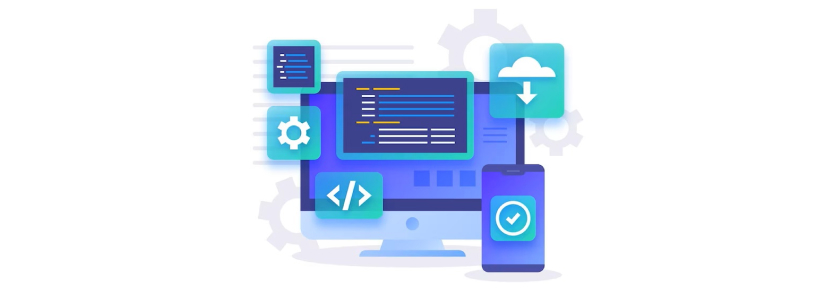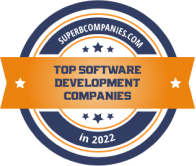The Pros and Cons of Open Source Software Development: Weighing the Risks and Rewards

Are you tired of shelling out big bucks for proprietary software? Do you want the freedom to customize your software to meet your unique business needs? If so, open-source software development services might be the solution you’re looking for. Open-source software offers many benefits, from cost savings to collaboration opportunities and beyond. But like any technology, it also has its own set of challenges.
In this blog, we’ll dive into the pros and cons of open-source software development, exploring the risks and rewards of this innovative approach to software development. Plus, we’ll show you how Imenso Software can help you overcome the challenges of open-source software development and achieve the results you need. So grab your thinking cap and let’s dive in!
What is Open Source Software Development?
Open source software development is like a community project where everyone is invited to help build and improve a piece of software. It’s like making a big Lego castle together, where everyone can add their own unique pieces to make it bigger and better.
The difference is that instead of Legos, we’re talking about computer code. Open-source software means that the code is open and available for anyone to see, use, and change. This means that developers from all over the world can work together to make the software better.
It’s like a big online playground where hire indian developers can share their ideas, ask for help, and work together to solve problems. This can result in software that is more secure, faster and has more features than if it were built by just one person or company.
Open-source software is also great because it’s free to use. This means that small businesses or non-profit organizations can benefit from powerful software without having to pay for expensive licenses.
In the end, open-source software development is a community-driven approach to building software that is inclusive, collaborative, and accessible to all.
What are the Pros of Open Source Software Development? 
Open-source software development has revolutionized the way software is created and distributed. Unlike traditional software development, open-source software allows anyone to view and modify the source code, leading to a number of benefits.
Cost Savings:
One of the key advantages of open-source software development is cost savings. Open-source software is often available for free, which can result in significant savings for businesses and individuals. This is particularly important for small businesses, non-profit organizations, and individuals who may not have the budget for expensive proprietary software.
In addition to the initial cost savings of obtaining open-source software, there are also long-term cost savings to consider. Because the source code is available for modification, businesses and individuals can customize the software to meet their specific needs, without having to pay for expensive licensing fees or vendor support.
Furthermore, because open-source software is often developed by a large community of volunteers, there are often a variety of free tools and resources available to help with implementation and support. This can also result in cost savings for businesses and individuals, as they may not need to hire expensive consultants or support staff to implement and maintain the software.
Customization:
Another significant advantage of open-source software development is the ability to customize the software to meet specific needs. Because the source code is available for anyone to view and modify, developers can tailor the software to fit the exact requirements of their users, without being limited by the functionality provided in proprietary software.
Customization can take many forms, from modifying the user interface to creating entirely new features or modules. This level of flexibility allows developers to create software that meets the unique needs of their users, rather than being limited by the requirements of a specific vendor or licensing agreement.
In addition, the ability to customize open-source software can lead to increased innovation and experimentation. Developers can experiment with new ideas and features, without being constrained by the limitations of proprietary software or the need to obtain approval from a vendor.
Customization can also lead to greater efficiency and productivity. By tailoring the software to the specific needs of their users, businesses and individuals can streamline their workflows and automate repetitive tasks, resulting in increased productivity and cost savings.
Collaboration:
Another major advantage of open-source software development is the collaborative nature of the development process. With open-source software, the source code is available to anyone to view, modify and contribute to. This collaborative approach to software development can lead to several benefits, including:
- Access to a large pool of talented developers: With open-source software development, anyone with the necessary skills can contribute to the project, regardless of their location or affiliation. This means that the project can benefit from the expertise of a large and diverse group of developers, resulting in software that is more reliable, secure, and functional.
- Faster Development Cycles: Collaboration between developers can lead to a faster development cycle, as bugs and issues can be identified and resolved more quickly. This can result in faster releases of new features and updates, leading to a more responsive and adaptable software solution.
- Improved Quality: Collaboration between developers can also lead to improved quality of the software. With many people reviewing and testing the code, bugs, and issues can be identified and resolved more quickly, resulting in software that is more reliable, secure, and functional.
- Shared Development Costs: Collaboration can also help to reduce the costs of software development. With a large group of developers working on the project, the cost of development can be shared across the community, resulting in a more cost-effective solution.
Security:
Security is another major advantage of open-source software development. In proprietary software, the source code is typically only available to the vendor or a select group of developers, which can make it difficult for users to verify the security of the software. However, in open-source software development, the source code is publicly available, which allows for a greater level of transparency and collaboration in the security of the software.
Here are some key benefits of open-source software development for security:
- Transparency: With open-source software, the source code is available for anyone to review, which means that vulnerabilities can be quickly identified and fixed. This is in contrast to proprietary software, where users are often reliant on the vendor to identify and fix security issues.
- Rapid Response to Security Issues: With the large community of developers working on open-source software projects, security issues can be identified and addressed quickly. This means that patches and updates can be released promptly, minimizing the risk of exploitation by attackers.
- No Backdoors: With proprietary software, there is always a risk that the vendor has included backdoors or other vulnerabilities in the software. In contrast, with open-source software, there is no risk of hidden vulnerabilities being introduced by the vendor.
- Independence: Users of open-source software are not tied to a single vendor, which means that they can switch to another provider if they are unhappy with the level of security provided by the current vendor. This provides users with greater independence and control over their security.
Innovation:
Innovation is another key advantage of open-source software development. The collaborative nature of open-source development allows developers to share ideas and work together on solving problems, which can lead to new and innovative software solutions. Here are some key benefits of open-source software development for innovation:
- Community-Driven Development: Open-source software development is often driven by a community of developers who are passionate about the software they are working on. This can lead to a more innovative and creative approach to software development, as developers are motivated by their love of the project, rather than financial incentives.
- Access to Emerging Technologies: With open-source software development, developers have access to the latest technologies and techniques. This means that new and emerging technologies can be incorporated into the software quickly, leading to innovative solutions that can benefit users.
- Rapid Prototyping: The collaborative nature of open-source software development allows developers to quickly prototype new features and ideas. This can lead to faster development cycles and more frequent releases of new features, which can drive innovation.
- Lower Barrier to Entry: Open source software development is often more accessible to new developers, as the source code is publicly available and there is a large community of developers who are willing to share their knowledge and expertise. This means that there is a lower barrier to entry for new developers who want to contribute to open-source projects, which can lead to new and innovative ideas being brought to the table.
Community Support:
Community support is a significant advantage of open-source software development. The community of developers and users who contribute to open-source projects can provide valuable support and resources to ensure the software remains stable and up-to-date. Here are some key benefits of open-source software development for community support:
- Access to a Large Community: Open-source software is developed and maintained by a large community of developers and users who are passionate about the project. This means that there is a wealth of knowledge and expertise available to help users with any issues they may encounter.
- Active and Responsive Community: The community of developers and users who contribute to open-source projects are typically highly engaged and responsive. This means that users can get help quickly and easily, without having to rely on the vendor for support.
- Flexibility and Customizability: Open-source software is highly customizable, which means that users can modify the software to meet their specific needs. This can be particularly useful for organizations that have unique requirements or workflows that cannot be met by off-the-shelf software.
- Transparency and Trust: The transparent nature of open-source software development can help to build trust with users. By making the source code available to everyone, users can verify that the software is secure and trustworthy.
What are the Cons of Open Source Software Development?
While there are many benefits to open-source software development, there are also some potential drawbacks that should be considered. Here are some of the cons of open-source software development:
Lack of Official Support:
One of the key drawbacks of open-source software development is the lack of official support. Unlike proprietary software solutions, which are typically backed by a vendor or provider who offers support and maintenance services, open-source software is often developed and maintained by a community of developers and users. This can lead to a lack of formal support channels, with users relying on community forums and resources to get help with issues or bugs. While the community can provide valuable support, it may not be as comprehensive or reliable as official support provided by a vendor.
Quality Control:
Another potential downside of open-source software development is the issue of quality control. With proprietary software solutions, the vendor is responsible for ensuring that the software is thoroughly tested and verified before release. In contrast, open-source software is often developed and maintained by a diverse community of developers and users, who may have varying levels of expertise and resources.
While the open-source community can help to identify and fix issues with the software, there may not be a formal process in place for testing and verifying the software. This can lead to quality control issues, such as bugs or glitches that may go undetected until they are discovered by users. In some cases, this can lead to delays in releasing updates or patches to fix issues, which can impact the usability and reliability of the software. It’s important for open-source developers to prioritize quality control processes to ensure that their software is stable and reliable for users.
Fragmentation:
Another potential drawback of open-source software development is fragmentation. Because open-source software is often developed by a diverse community of developers, there may be multiple versions or forks of the software available. This can lead to compatibility issues, particularly if different versions of the software are not fully compatible with one another.
Fragmentation can also make it more difficult to maintain and support the software. For example, if a user is using an older version of the software that is no longer supported by the community, they may be at risk for security vulnerabilities or other issues. Additionally, if different forks of the software have different features or functionalities, users may need to choose between them based on their specific needs.
To address fragmentation, open-source developers can work to ensure that their software is well-documented and clearly communicated to users. They can also work to establish standards for the software to ensure that different versions remain compatible with one another. By working to reduce fragmentation, open-source developers can make their software more accessible and user-friendly for a wider range of users.
Complexity:
Another potential drawback of open-source software development is its complexity. Because open-source software is often developed by a diverse community of contributors, the software can become complex and difficult to understand or modify. This can make it challenging for new developers to contribute to the project, as they may struggle to navigate the codebase and understand the project’s architecture.
Complexity can also impact the usability and accessibility of the software for end users. If the software is difficult to use or requires a steep learning curve, users may be less likely to adopt it. Additionally, if the software is complex, it may be more prone to bugs or other issues, which can impact its stability and reliability.
To address complexity, open-source developers can work to ensure that their software is well-documented and clearly structured. They can also work to establish best practices and guidelines for contributing to the project, which can make it easier for new developers to get involved. By prioritizing simplicity and accessibility, open-source developers can create software that is more user-friendly and accessible to a wider range of users.
Security Risks:
Because the source code for open-source software is openly available, it can be easier for malicious actors to identify and exploit vulnerabilities in the software. Additionally, because open-source software is often developed and maintained by a community of contributors, it can be difficult to ensure that all code changes are properly vetted and tested for security issues.
Open-source software can also be more susceptible to supply chain attacks, where attackers insert malicious code into the software during the development or distribution process. This can lead to serious security risks, particularly for software that is widely used or critical to infrastructure.
To address security risks, open-source developers can prioritize security best practices and processes, such as code reviews, vulnerability assessments, and penetration testing. They can also work to establish trust and transparency with users, by openly communicating about security vulnerabilities and promptly releasing updates or patches to fix them. By prioritizing security, open-source developers can help to mitigate potential risks and ensure that their software is safe and reliable for users.
Lack of Features:
While open-source software can offer a wide range of benefits, it may not always have the same level of features or support as proprietary software. This can be particularly true for specialized or niche applications, where there may be limited resources available to develop or maintain the software.
Additionally, because open-source software is often developed by a community of volunteers or contributors, there may be less incentive to prioritize certain features or functionalities. This can result in software that may not fully meet the needs or expectations of all users.
To address the potential lack of features in open-source software, developers can prioritize user feedback and engagement, working to understand user needs and requirements. They can also work to establish partnerships or collaborations with other developers or organizations to leverage additional resources and expertise. By prioritizing user needs and engaging with the community, open-source developers can work to ensure that their software is as comprehensive and user-friendly as possible.
How to Overcome Open Source Software Development Challenges?
If you’re considering using open-source software for your business or organization, it’s important to be aware of the potential drawbacks. While open-source software offers many benefits, such as cost savings, customization, and collaboration, it can also come with a range of challenges. These include the lack of official support, quality control issues, security risks, complexity, fragmentation, and the potential for a lack of features or functionality. However, with the help of Imenso Software, you can overcome these challenges and take advantage of the many benefits that open-source software development has to offer.
- Lack of Official Support: Imenso Software provides comprehensive support and maintenance services for software development projects, ensuring that your software is always up-to-date and running smoothly. They offer a range of support options, including bug fixes, feature enhancements, and performance optimization.
- Quality Control: Imenso Software follows rigorous testing and quality assurance processes to ensure that its software is stable, reliable, and meets the needs of its clients. They prioritize testing throughout the development process, from unit testing to integration testing to acceptance testing, to ensure that their software is thoroughly tested and free from bugs and issues.
- Security: Imenso Software takes security seriously, and follows best practices for secure software development, including using encryption, implementing access controls, and conducting regular security audits. They also stay up-to-date on the latest security threats and vulnerabilities and work to quickly address any issues that arise.
- Lack of Features: Imenso Software works closely with clients to understand their needs and requirements, and can provide customized software solutions that meet their specific needs. They have expertise in a wide range of technologies and platforms and can provide the technical expertise needed to build comprehensive software solutions.
- Complexity: Imenso Software prioritizes simplicity and usability in its software development projects, ensuring that its software is user-friendly and easy to navigate. They also provide comprehensive documentation and support materials to make it easy for users to understand and use their software.
In short, Imenso Software can help you overcome the cons of open-source software development by providing comprehensive support, quality control, security, customization, and simplicity in their software development projects.
Wrapping it Up:
In conclusion, open-source software development offers many benefits, including cost savings, customization, collaboration, and innovation. However, it also comes with its own set of challenges, such as lack of official support, quality control issues, security risks, fragmentation, complexity, and lack of features. With the right approach, these challenges can be overcome, and the benefits of open-source software can be fully realized. Imenso Software can help you navigate the complexities of open-source software development, providing support, maintenance, and customization services to help you achieve your business goals. By carefully weighing the risks and rewards of open-source software development, and partnering with an experienced software development company like Imenso, you can take advantage of this powerful technology and stay ahead of the competition.
Similar Posts

9 Secrets to Extraordinary Web Development in 2024 with Laravel
Often, one may be left wondering what exactly comes as a difference between a good and a great web application. The answer certainly lies in these minute details, slight subtleties, and constant improvements in the framework chalked out at its core. This has been a powerful channel in web development, whereby developers get flexible and […]...

Top 10 Javascript Frameworks
There are several popular Javascript frameworks out there and there is continuous effort to add more values to the code repository. But with such expanding range of choices, often it is a little confusing to decide on a framework that you actually need. Well, this is when a detailed comparison of the most popular and […]...

[Updated] Top 18 Best Power BI Dashboard Examples
Looking for the best Power BI dashboards examples? You have come to the right blog! Microsoft Power BI is a powerhouse when it comes to data analytics and visualization, offering a load of tools and features to cater to various business needs. Creating business dashboards is one of the most impactful features among its many […]...








